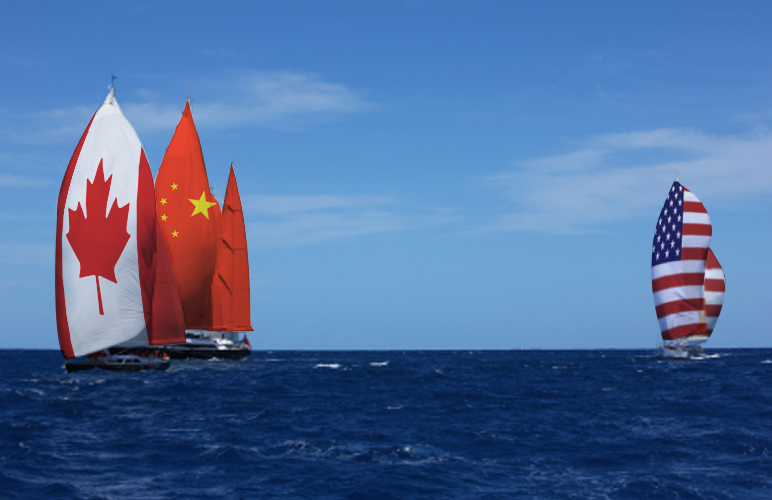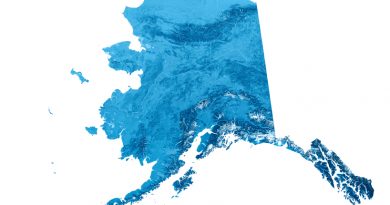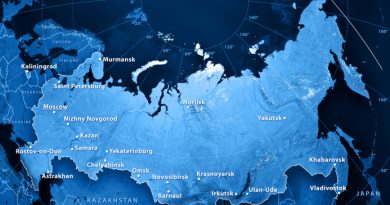Clinton urges US cooperation in Arctic, ratifying Law of Sea
 U.S. Secretary of State Hillary Clinton was back in Norway last weekend to talk cooperation and alliance for the predicted Arctic resource rush. Duly, she’s been working behind the scenes in Congress to urge ratification of a United Nations treaty that will most likely become official international “rules of the road” in the Far North.
U.S. Secretary of State Hillary Clinton was back in Norway last weekend to talk cooperation and alliance for the predicted Arctic resource rush. Duly, she’s been working behind the scenes in Congress to urge ratification of a United Nations treaty that will most likely become official international “rules of the road” in the Far North.
The race to claim and develop the Arctic’s oil, gas, mineral deposits and natural resources are catalysts for what’s shaping up to be the next great international battle, Clinton said in Oslo.
“From a strategic standpoint, the Arctic has an increasing geopolitical importance as countries vie to protect their rights and extend their influence. (Governments should) agree on what would be, in effect, the rules of the road in the Arctic, so new developments are economically sustainable and environmentally responsible toward future generations.”
Considering that there’s an estimated 44 to 157 billion barrels of oil lurking north of the Arctic Circle it’s no wonder the melting pole has become a government priority. According to the U.S. Geological Survey there’s a 50 percent chance of finding up to 83 billion barrels of oil in the Arctic; about 73 percent of that crude will be found offshore. Collectively, the USGS estimates the Arctic holds roughly a third of the world’s undiscovered natural gas and 13 percent of the world’s undiscovered oil.
Secretary Clinton is adamant that the U.S. be prepared to cooperate with other nations in order to combat climate change, settle territorial disputes and prevent natural disaster while pursuing riches of the world’s northern regions. She hopes to reduce incidents of conflict and muscle flexing by Arctic states like Canada, which has been building up its Arctic military presence, and Russia, which planted a flag at the bottom of the Arctic Ocean in 2007.
At the time, Russians were set on flexing their international claim to the Arctic and its estimated $9 trillion in energy reserves. However, since then, Russia has eased tensions a bit by publicly agreeing to process any further “claims” through an agreed-upon United Nations process.
As far as cooperation and diplomacy goes, Russia is in. The U.S., on the other hand, has some work to do.
Congress has yet to ratify the 1982 Law of the Sea treaty, which regulates the world’s oceans for military, transportation and mineral extraction purposes. Although 160 countries have signed onto the pact — including the Arctic nations of Canada, Denmark (and Greenland), Finland, Iceland, Norway, Russia and Sweden — the U.S. remains sheepish.
If the United States doesn’t ratify Law of the Sea soon there may be a high price to pay, one that could elevate probability for conflict. The U.S., in theory, could be blocked by participating countries from the Arctic race, meaning that $9 trillion in potential assets would become out of reach, or at least out of reach without a fight.
Secretary Clinton is the latest high-profile American representative to endorse ratifying Law of the Sea. At a Senate hearing last week, Clinton assured that signing the treaty would offer the U.S. oil and gas rights that might otherwise be lost. The treaty, which has the potential to affect United States interests in the Gulf of Mexico, areas off the Pacific Northwest and California, will be most relevant to Alaskans.
“American companies are equipped and ready to engage in deep seabed mining, but the United States can only take advantage of the … mine sites in areas beyond national jurisdiction as a party to this treaty,” Secretary Clinton said.
Clinton notes that the world is changing and the U.S. should not miss out. Although the U.S. plans to explore what it already considers home territory, there remains a vast amount of Arctic that falls within “the commons,” thus a common global responsibility. Cooperation is necessary to reaping the benefits of exploration and resource development in the Arctic. In Tromso, home of the eight-nation Arctic Council, Clinton’s message for new opportunities was received with a note of positivity and excitement.
Contact Katie Medred at katie(at)alaskadispatch.com
For more stories from Alaska Dispatch, click here



